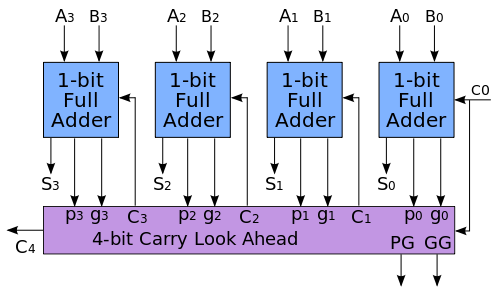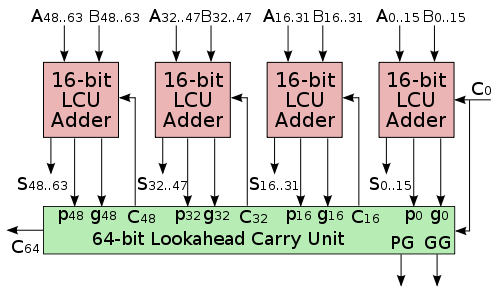Lookahead carry unit
A lookahead carry unit (LCU) is a logical unit in digital circuit design used to decrease calculation time in adder units and used in conjunction with carry look-ahead adders (CLAs).
4-bit adder
A single 4-bit CLA is shown below:

16-bit adder
By combining four 4-bit CLAs, a 16-bit adder can be created but additional logic is needed in the form of an LCU.
The LCU accepts the group propagate ( ) and group generate ( ) from each of the four CLAs. and have the following expressions for each CLA adder:[1]
The LCU then generates the carry input for each CLA.
Assume that is and is from the ith CLA then the output carry bits are
Substituting into , then into , then into yields the expanded equations:
corresponds to the carry input into the second CLA; to the third CLA; to the fourth CLA; and to overflow carry bit.
In addition, the LCU can calculate its own propagate and generate:

64-bit adder
By combining 4 CLAs and an LCU together creates a 16-bit adder. Four of these units can be combined to form a 64-bit adder. An additional (second-level) LCU is needed that accepts the propragate ( ) and generate ( ) from each LCU and the four carry outputs generated by the second-level LCU are fed into the first-level LCUs.

References
- ↑ "Archived copy". Archived from the original on 2011-09-25. Retrieved 2011-10-07.
- Katz, Randy (1994). Contemporary Logic Design. The Benjamin/Cummings Publishing Company. pp. 249–256. ISBN 0-8053-2703-7.
- Vahid, Frank (2006). Digital Design. John Wiley and Sons Publishers. pp. 296–316. ISBN 0-470-04437-3.